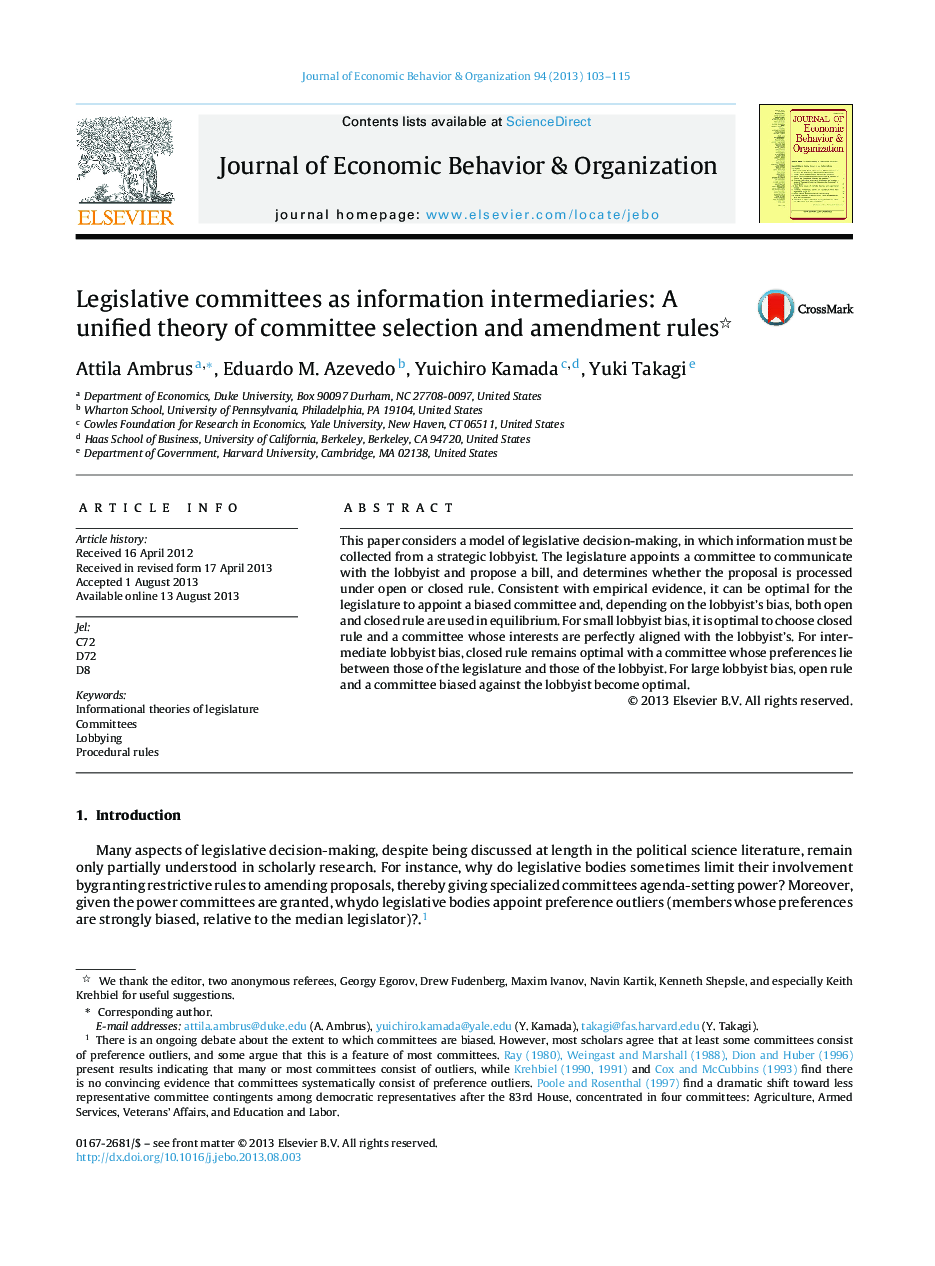| Article ID | Journal | Published Year | Pages | File Type |
|---|---|---|---|---|
| 7243659 | Journal of Economic Behavior & Organization | 2013 | 13 Pages |
Abstract
This paper considers a model of legislative decision-making, in which information must be collected from a strategic lobbyist. The legislature appoints a committee to communicate with the lobbyist and propose a bill, and determines whether the proposal is processed under open or closed rule. Consistent with empirical evidence, it can be optimal for the legislature to appoint a biased committee and, depending on the lobbyist's bias, both open and closed rule are used in equilibrium. For small lobbyist bias, it is optimal to choose closed rule and a committee whose interests are perfectly aligned with the lobbyist's. For intermediate lobbyist bias, closed rule remains optimal with a committee whose preferences lie between those of the legislature and those of the lobbyist. For large lobbyist bias, open rule and a committee biased against the lobbyist become optimal.
Keywords
Related Topics
Social Sciences and Humanities
Economics, Econometrics and Finance
Economics and Econometrics
Authors
Attila Ambrus, Eduardo M. Azevedo, Yuichiro Kamada, Yuki Takagi,
